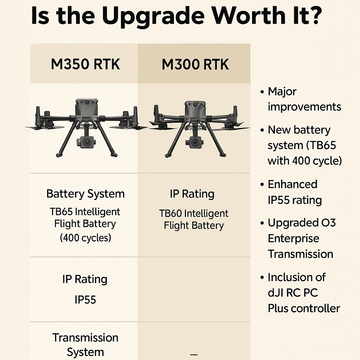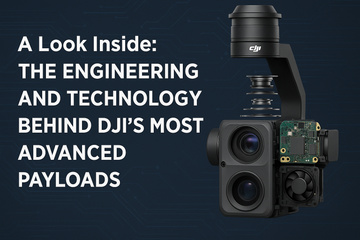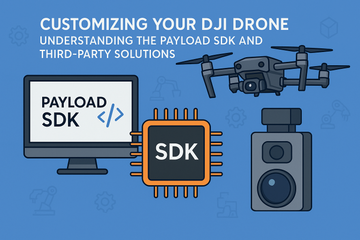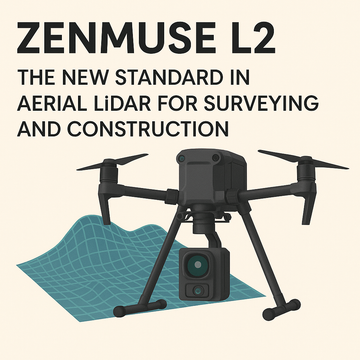M350 RTK vs. M300 RTK: Is the Upgrade Worth It?
For enterprise drone operators, every investment must deliver a significant return. For those who own the industry-standard M300 RTK, the arrival of the M350 RTK raises a crucial question: Is the upgrade worth it?
While the two platforms share a similar design philosophy, the M350 RTK introduces key upgrades that address real-world operational pain points. This head-to-head comparison breaks down the major improvements to help you decide if it’s time to move to the next generation.
Power Redefined: The TB65 Battery System
One of the most impactful upgrades in the M350 RTK is its new power system. The TB65 Intelligent Flight Batteries offer a service life of up to 400 charge cycles, doubling the lifespan of the M300 RTK's TB60 batteries.
That means twice the number of flights per pair before replacement—slashing long-term operational costs.
Paired with the new BS65 battery station, operators gain enhanced charging modes for quicker turnarounds or healthier long-term battery management, boosting efficiency for fleet operators.
Built Tougher: IP55 Rating for All-Weather Reliability
Both drones are designed for rugged environments, but the M350 pushes durability further.
-
M300 RTK: IP45 rating (protection against low-pressure water jets and limited dust ingress).
-
M350 RTK: IP55 rating, delivering superior dust resistance while maintaining the same water protection.
This higher dust tolerance ensures safer flights in arid, windy, and high-particulate conditions—an advantage for global operations in tough climates.
Upgraded Transmission: O3 Enterprise for Unbreakable Links
Reliable transmission is non-negotiable.
-
M300 RTK: OcuSync 2.0 transmission.
-
M350 RTK: O3 Enterprise Transmission, featuring a four-antenna system.
This boosts stability, extends transmission distance up to 20 km (FCC), and provides stronger anti-interference. The result? Greater confidence in urban missions with signal congestion and across wide, remote landscapes.
Command and Control: The DJI RC Plus Controller
The DJI RC Plus is one of the most visible upgrades.
Compared to the M300 RTK’s Smart Controller Enterprise, the RC Plus features:
-
A larger, brighter 7-inch screen
-
More ergonomic design with physical buttons
-
Longer battery life
While the RC Plus can now be used with the M300 RTK via firmware update, it comes standard with the M350, giving operators a more professional out-of-the-box experience.
The Final Verdict: Is the Upgrade Worth It?
For current M300 RTK owners, the M350 RTK is a compelling next step—especially if you’re scaling fleets or replacing older units.
-
Cost Efficiency: TB65 batteries cut replacement costs in half.
-
Durability: IP55 rating ensures better reliability in harsh environments.
-
Performance: O3 Enterprise transmission strengthens links over distance and interference.
-
Usability: RC Plus controller makes daily operations smoother.
The M300 RTK is still highly capable, but for operators who demand maximum efficiency, reliability, and future-proofing, the M350 RTK delivers upgrades that matter where it counts.
#M350RTK #M300RTK #DJIEnterprise #DroneComparison #Upgrade #TB65 #IP55 #O3Enterprise #DJIRCPlus







